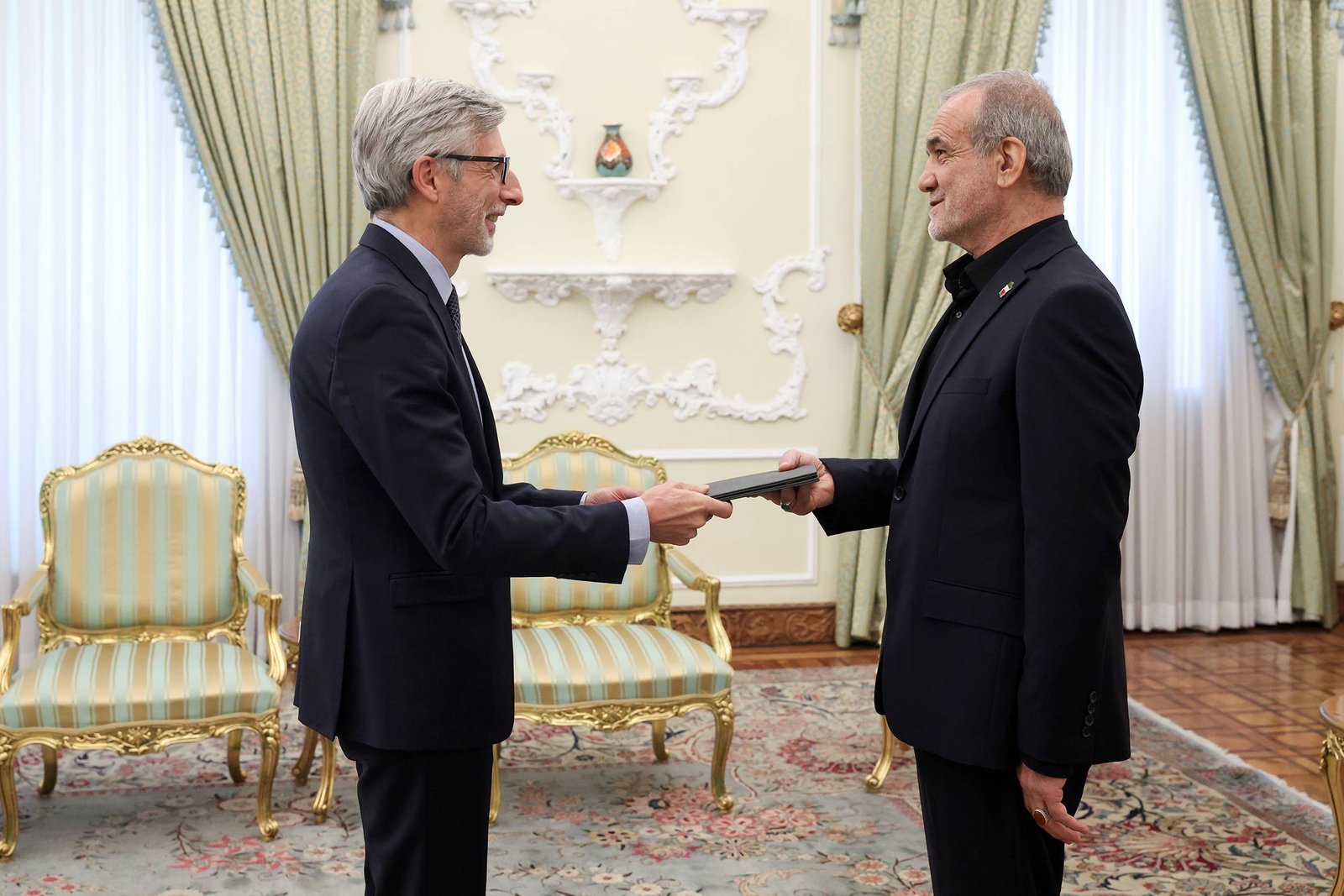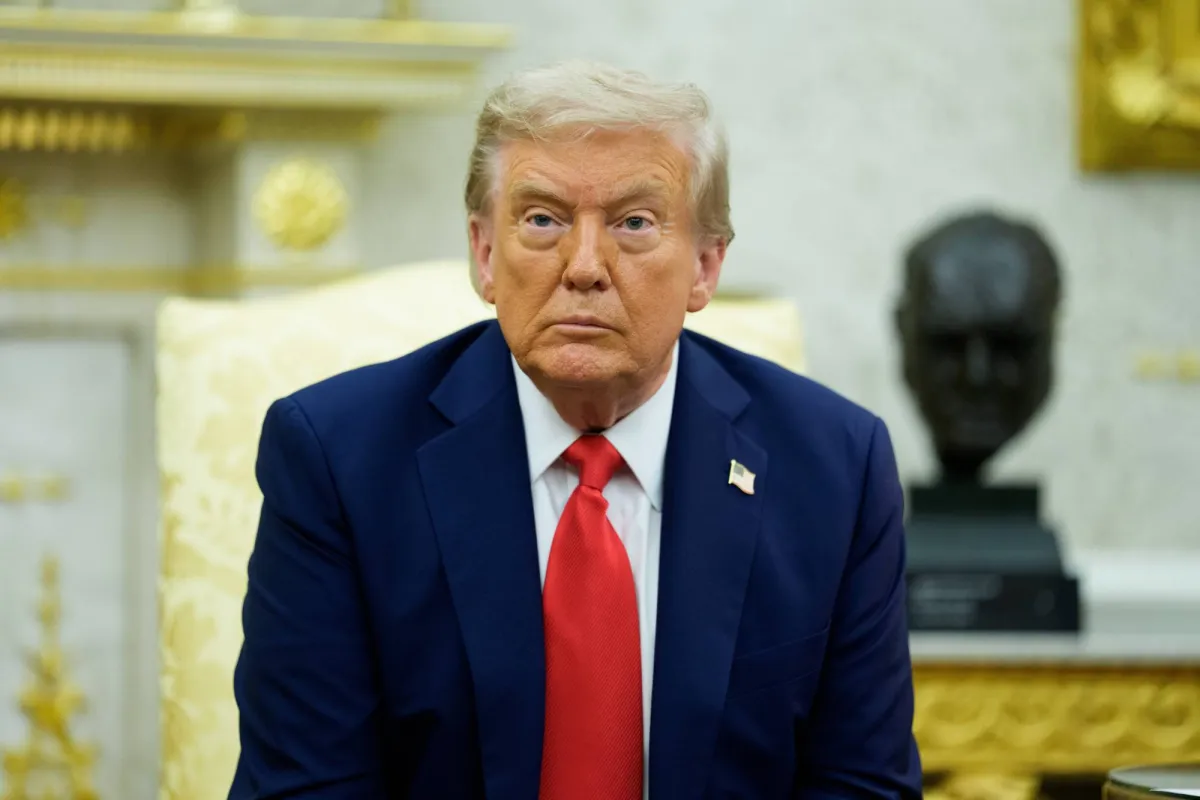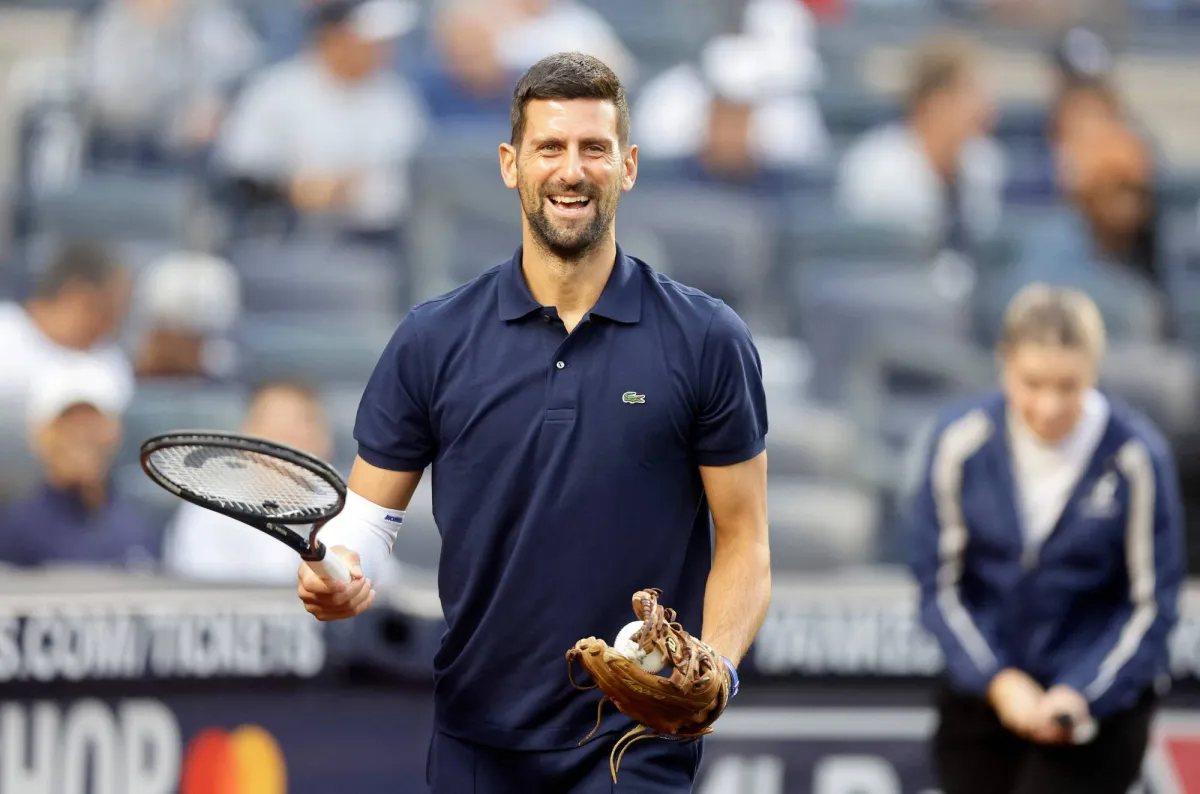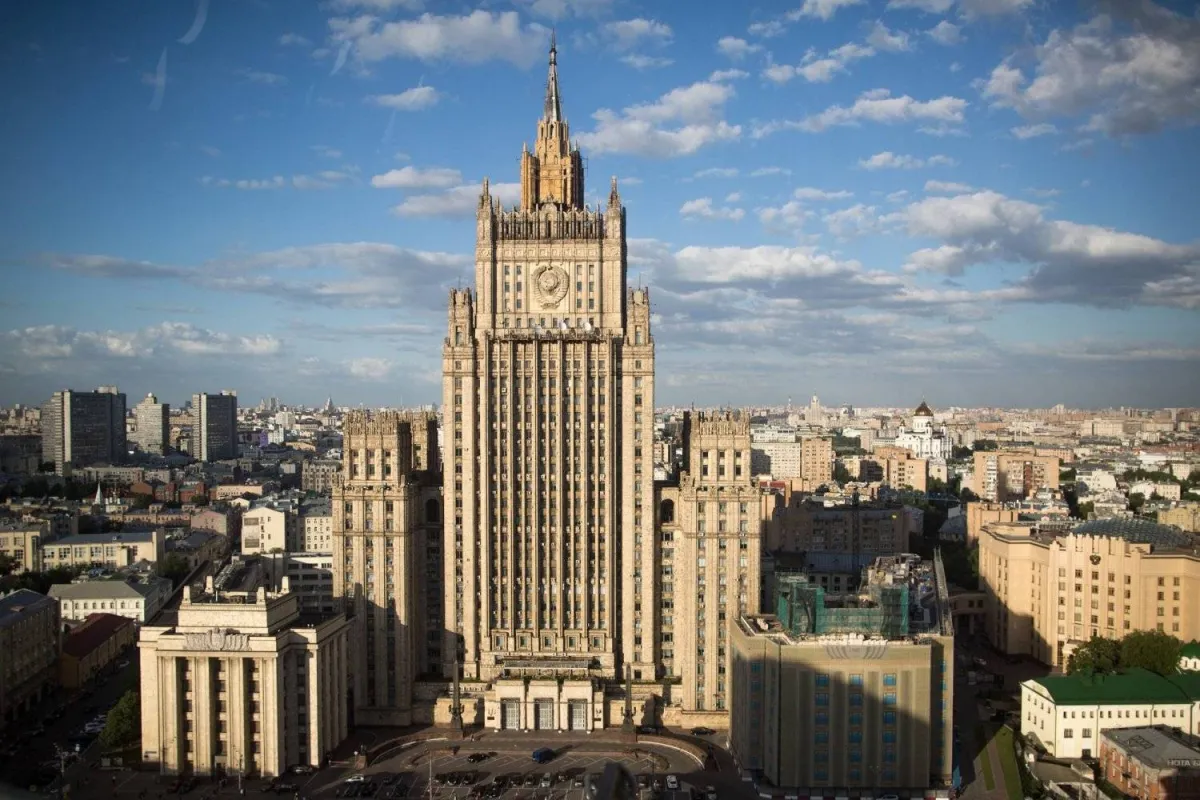Trump warns Iran of “bad signals” and waved to bomb them again
On Monday, US President Donald Trump warned that he would order new American attacks on Iranian nuclear facilities if Tehran tries to return to the uranium enrichment process in the United States’ facilities last month.
Trump issued the warning during talks with British Prime Minister Kiir Starmer at the Turnbury Golf Resort on the western coast of Scotland.
Iran, which denies its endeavor to make a nuclear weapon, insists that it will not abandon the enrichment of uranium locally despite the bombing of three nuclear sites.
President Trump told reporters that Iran is sending “very bad and disturbing signs, and they would not have done so …”, and that any attempt to resume its eurnium fertilization program “will be crushed immediately.” He added, “We have eliminated their nuclear capabilities, they may resume the program again, and if they do so, we will spend it faster than you can imagine,” according to Reuters.
On Sunday, Trump announced, during his meeting with the President of the European Commission, Ursula von der Line, that he had spoken with Israeli Prime Minister Netanyahu on Iran.
“I think Iran was very aggressive with its statements,” Trump added. They have received a severe blow, and I do not think they realize it. Iran was subjected to great defeat and for good reasons. We cannot allow them to own a nuclear weapon. ”
He pointed out that Iran continues to insist on enriching uranium on its soil in any agreement. He said: «Who may say that? How stupid should you say that? So we will not allow this to happen. ”
Two major Netanyahu assistants traveled to the United States on Sunday, and they will hold talks this week with White House officials on Iran and Gaza, according to an Israeli official and another source familiar with the “Axios” website.
The visit of the Minister of Strategic Affairs, Ron Dermer, and the National Security Adviser Tzahi Henghabi, comes in light of the stalemate in the Gaza negotiations, and at a time when Israel and the United States are coordinating the following steps on Iran.
Tehran refuses to give up
In Tehran, Iranian President Masoud Boukhshkian said that his country “does not seek the war and is ready for dialogue, but its response to any possible aggression will be strong and decisive,” according to a statement of the Iranian presidency.
Bouzshkian said during the ceremony of receiving the credentials of the new French ambassador, Pierre Koshr, that his government seeks to “achieve internal reconciliation and interact with the world”, accusing Western countries of “disrupting this path through false propaganda and accusing Iran of seeking to possess a nuclear weapon.”

The Iranian president explained that his country is demanding its rights within the framework of international laws and adheres to its requirements, noting that Iran “has previously accepted the most controlled regulations for its nuclear activities, and it is also also ready to cooperate in this field”, but he stressed that “this does not mean waiving the rights of the Iranian people.”
Bazshkian expressed his hope to develop relations with France “on the basis of mutual respect”, referring to an attempt to break the international isolation imposed by Washington and its allies on Tehran.
The Iranian presidential statement attributed to the French ambassador as saying that his country “believes that the dialogue is the only way to resolve differences in the nuclear file, and stresses the need to give diplomacy more time.”
On Sunday, France called for a “comprehensive agreement” with Tehran that includes its missile program and regional influence. French Foreign Minister Jean -Noel Barrow told CBS News that Western governments are seeking a “comprehensive agreement” with Iran, from his goals to avoid “the danger” of their secretly to possess a nuclear weapon, which is something that Tehran insisted repeatedly that it does not aspire to.
Barrow stated that an agreement of this kind will include the “nuclear dimension”, “the Palastian component” and “activities of destabilizing Iran”, in reference to the armed groups supported by Tehran across the Middle East, according to the French Press Agency.
His remarks followed a meeting Friday between Iranian diplomats and French, British and German envoys, in the first talks on Tehran’s nuclear program since the war between Israel and Iran, which lasted 12 days in June.
Friday’s talks in Istanbul came at a time when the three European powers threatened to activate the Snap Back mechanism that the Iranians call the “trigger mechanism” and which is contained in the nuclear agreement, which allows the re -imposition of the sanctions of the UN Security Council on Tehran if it does not comply with the terms of the agreement. The mechanism activation deadline ends in October.
“Unless a new, strong and sustainable agreement is reached by the end of the summer, France, Germany and the United Kingdom will not have any option but to re -impose the global ban that was raised ten years ago.”
Iran has previously warned that it would withdraw from the international nuclear non -proliferation treaty if sanctions were re -imposed on it.
In response to Barrow’s assurances, Iranian Foreign Ministry spokesman, Ismail Baqi, said that Iran “will not negotiate its defensive capabilities.”
“With regard to matters related to our defensive capabilities, there will be no talks at all,” he said in a periodic press conference. He added that the war with Israel made Iran “more determined … to protect all its origins, including its tools to defend itself in the face of external aggression and hostility.”
My stay explained that Istanbul’s meeting with European powers focused only on “the nuclear file and the lifting of sanctions.” He continued that the presentation of any other issues that have nothing to do with that … It is merely an indication of confusion that the other party feels. “
“We cannot expect a country to remain a party to the Treaty of the Prohibition of Proliferation, while it is deprived of its rights listed in it, especially the peaceful use of nuclear energy.”
My stay indicated that a team from the International Atomic Energy Agency will be a visit to Iran within two weeks.
This comes a few days after the agency’s general manager’s statement that Tehran is ready to resume technical talks.
Baqai added that a guide will be provided on the future of Iran’s cooperation with the United Nations Atomic Agency; Based on a parliamentary law recently, it imposes restrictions on this cooperation.
During the war, Israel targeted nuclear and military facilities in particular, during which senior military officials and scientists working to develop the Iranian nuclear program were killed. The United States joined the war for a short period to bomb three strategic nuclear sites.
The fighting removed the American -Iranian nuclear negotiations that started in April from its path and pushing Iran to reduce cooperation with the International Atomic Energy Organization.
The Yedioth Ahronoth newspaper reported on Sunday that Defense Minister Yisrael Katz threatened to target Iranian Leader Ali Khamenei “personally” if he continues to “threaten” Israel.
“If you continue to threaten Israel, then our long arm will reach Tehran again with greater strength, and this time in person.”
Israel launched a surprise attack on Iran last month, and the two countries exchanged air and missile shelling; The killing of hundreds. The United States carried out a blow using bombers equipped with miraculous bombs targeting the main Iranian nuclear sites.
Trump said at the time that he was accurately knew the place of Khamenei, but he did not allow Israel or the American army to kill him.



